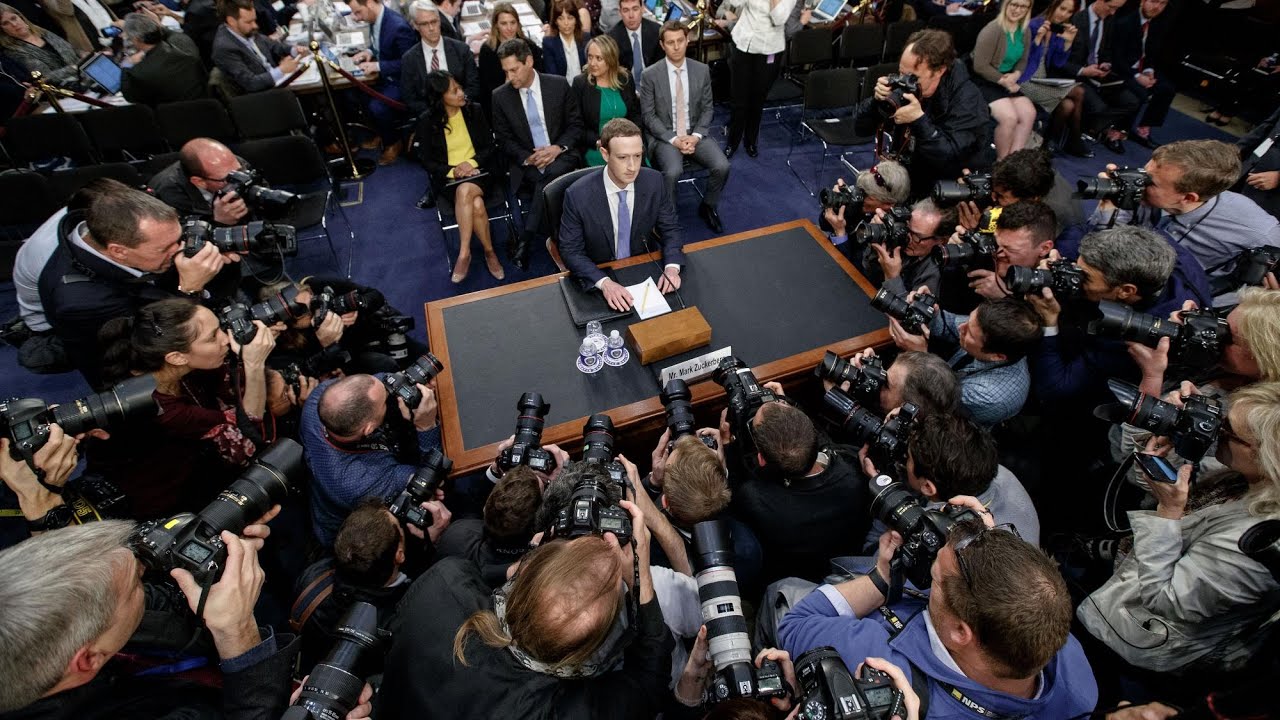During Mark Zuckerberg’s testimony in front of Congress at the height of the Cambridge Analytica scandal in 2018, senators from both sides of the aisle asked the following questions:
“How do you sustain a business model in which users don’t pay for your service?”
“Is Twitter the same as what you do?”
“If I’m emailing within Whatsapp, does that inform your advertisers?”
Watching this saga unfold, my generation did what we always did when we try to make sense of this world: we made memes.
Regulation is often slow to catch up with technology. Seatbelts didn’t become mandatory until 1968, 50 years after Henry Ford revolutionized the automobile with the rollout of Model T. Yet, watching the lines of questioning from the Senators (don’t they have younger aides??) made it clear to us that our elected officials are ill-equipped to deal with the fast-paced technological advancements in machine learning, artificial intelligence, and the Data Revolution, which have a real impact on the health of our democracy. Social media helps members of my generation connect, explore creative ideas, organize protests, become better informed, and learn about societal issues. Yet, in doing so we forfeit our privacy to the tech giants under the “third-party doctrine.”
Many of us see the use of surveillance technology as a natural evolution, and use gallows humor to cope with the extent of its implementation. While the notion that everyone has their own unique FBI agent is clearly over the top, it represents the seemingly abstract nature of surveillance. Yes, Cambridge Analytica is defunct, but there are plenty more like it that we are likely unaware of. In Brazil, there is a common saying: “Rir para não chorar.” Translation: To laugh so that one does not cry. It is our generation that has to deal with the consequences of these surveillance and manipulation tools. We can’t afford to wait until a new generation of elected officials that better understands the good ol’ world-wide-web comes around; by then, the playbook will be different.
So, we resort to memes as a tool of resistance. But they aren’t our only tool. The demographic of people that use VPNs the most is 16-24 year olds. Many have left Google in favor of search engines like DuckDuckGo that don’t profile its users. Others might tape their laptop camera. Cardi B wrote a grammy-award winning album titled “Invasion of Privacy.” Our generation is acutely aware of surveillance technology; we came of age in an era where it is commonplace to surrender personal information to the cellphones in our pockets. No, the fourth amendment might not be as seductive as the first or as high-profile as the second, but young Americans are demanding better privacy protection rights. Memes are one way in which we express that, so long as we don’t fall victim to the “privacy paradox,” a state of valuing privacy yet failing to take action to protect it.
Even watching the unfolding of the Cambridge Analytica scandal, it can be difficult to come to grips with how the network that we created, nurtured, and came to love can be weaponized against us personally. No one likes to think that they can be manipulated, and this translates into taking fewer privacy precautions. At the start of our class, Dr. Juan Lindau asked us two questions:
Do you use Facebook?
Do you use a VPN?
Most students in the class did use Facebook but did not use VPNs. Yet, as we discussed privacy on the first day of class, it became clear that students care about the threat that surveillance poses against our civil liberties. Some of us might rationalize it by saying “I have nothing to hide.” Others might say “I am completely irrelevant.” But as Dr. Lindau argues, these rationalizations negate reality. Ironically, memes were also used to spread misinformation on platforms like Facebook, as Russia did in 2016. Data can be used against anyone, and we mustn’t be so arrogant to think otherwise.
Regulation isn’t impossible, and not all elected officials are as confused as Chuck Grassley. Ron Wyden (D-OR) introduced the Mind Your Own Business Act in 2019, which, if passed, would go even farther than the European Union’s GDPR in data protection. In Wyden’s own words, “Consumers must be able to control their own private information, companies must provide vastly more transparency about how they use and share our data, and corporate executives need to be held personally responsible when they lie about protecting our personal information.”

Clever, thoughtful, wide-ranging, but also prompts the reader to think. We need more blogs like this one!